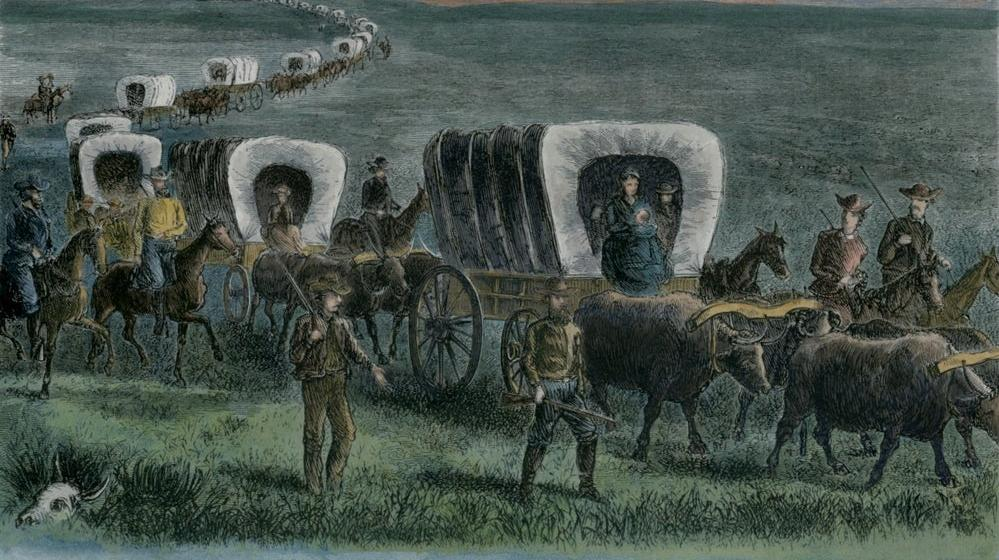How This 'Vintage' Baking Soda Grew Popular On The Oregon Trail
Out of baking soda? You could try digging in a lake.
I've been fixated on westerns for the last two weeks, ever since something possessed me to watch the heart-wrenching Yellowstone prequel. That's how I found myself hunched over the kitchen table with a crazed look in my eye, frantically looking up recipes for hard tack. After wading through a number of alarming survivalist food blogs, I found a pioneer bread recipe that pointed to the granddaddy of today's baking soda: a powdery substance called saleratus.
What is saleratus?
Per a 1996 L.A. Times article, saleratus is a naturally occurring high-alkaline mineral found in the western United States. The mineral is found in the shallow lakes that dotted the western edges of the Oregon Trail. To the weary traveler, the lakes would have seemed like a welcome watering hole—until the traveler noticed those sweet white alkali glimmering on the lakes' edges. But the white flakes served a purpose all their own: that highly alkaline solution was advertised as a leavening agent and sold in general store barrels and take-home packets beginning around 1840.
Of course, humans figured out how to leaven bread long before cowboys started scooping saleratus out of dried-up Wyoming lakes. The L.A. Times reports that, starting around 1740, a powder called pearlash was used as leavening in quick breads. The powdery, slightly moist mineral is pure potassium carbonate, originally created by baking wood or the potassium-rich salt potash in a kiln. That process left behind a white powder that became alkaline when mixed with water. Throw vinegar or sour milk into a recipe, and boom—you've got carbon dioxide bubbles.
Why did travelers begin opting for saleratus? The Wyoming State Historical Society cites a few written accounts from pioneers, one of whom insisted that "large quantities [of saleratus] can [be] gathered in a short time and when pulverized it looks clean and nice." Basically, there was no refinement necessary; unlike pearlash, saleratus was a powerful leavening agent all on its own. Seems like saleratus could do it all—except protect little Jimmy from dysentery. Win some, lose some. Either way, if you find yourself heading westward, be sure to stop and scoop up some saleratus for the ride home.
